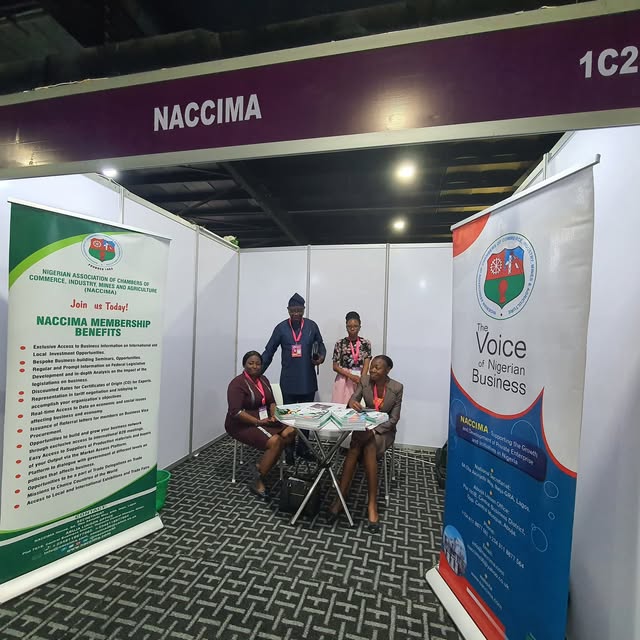The National Association of Chambers of Commerce, Industry, Mines and Agricult
ure (NACCIMA) has expressed grave concerns over the federal government’s deficit financing model, warning that its effects are spiraling into severe economic challenges for Nigerians.
In a fiery critique delivered on the Arise TV Morning Show on January 7, 2025, Dele Oye, the National President of NACCIMA, insisted that the government’s reliance on deficit financing is significantly contributing to the depreciation of the Naira and exacerbating inflation. He cautioned that, in the long term, this approach is creating a vicious cycle of poverty and economic instability.
“The government’s model of funding its budget deficit through deficit financing is directly hurting the value of the Naira,” said Oye. “Each budget cycle only seems to be making things worse, further diminishing the purchasing power of the Nigerian people.”
Oye’s comments came at a time when the nation is grappling with a significant devaluation of the Naira, which has been at the heart of a rising cost of living crisis. He stressed that inflationary pressures, driven largely by the weakening currency, are negatively impacting everyday Nigerians who face increased prices for basic goods and services.
Oye made it clear that NACCIMA does not oppose government reforms but is calling for a change in the way these reforms are being implemented. He explained that the private sector should be seen as a key partner in the effort to recalibrate the nation’s policies, rather than a mere subject of policy enforcement.
“We cannot tax ourselves out of the problems that we face. Instead, we need to work together with the private sector, reduce taxes, and make Nigeria more attractive for investment,” Oye urged. “Nigeria must stop shrinking the private sector while the public sector keeps growing. This imbalance is unsustainable and hurting all Nigerians.”
Oye emphasized that the key to restoring economic stability and improving the business environment lies in reducing government expenditure and focusing on a policy framework that supports private sector growth. This, he argued, would create jobs, stimulate the economy, and in turn, improve the living standards of the people.
Addressing the recent volatility in the currency markets, Oye underlined the urgent need for the government to reconsider its fiscal strategy. He noted that the current national budget deficit—estimated at N13 trillion—has led directly to the weakening of the Naira, which in turn increases inflation.
“In a climate where the currency depreciates daily, who would want to invest?” Oye asked rhetorically. “The real problem is that government spending, financed through deficit budgeting, is squeezing the economy from both ends. We are left with an economy that grows weaker with every passing budget.”
In his calls to the federal government, Oye particularly urged the Central Bank of Nigeria (CBN) to rethink its interest rate policy. He warned that current interest rates, which are considered too high for businesses to borrow at sustainable rates, are choking the private sector.
“Every day, businesses are forced to borrow at unmanageable rates, and the CBN’s recent policies aren’t helping,” he said. “The President himself promised us access to single-digit interest rates, but that promise seems increasingly far from reality. The current financial climate makes it harder for businesses to thrive.”
Oye’s comments echoed a broader plea for economic reforms that are more responsive to the challenges faced by businesses. He insisted that government policies should be realigned to encourage investment, rather than stifling it. “Investors will avoid Nigeria if the climate is unpredictable, if the currency is unstable, and if the cost of doing business continues to rise because of misguided fiscal policies,” Oye cautioned.
At the same event, Adewale-Smatt Oyerinde, Director General of the Nigeria Employers’ Consultative Association (NECA), added his voice to the debate, calling for the strict enforcement of the N70,000 minimum wage across all levels of government. Oyerinde, who also appeared on the Morning Show, argued that claims from some state governments of being unable to pay the minimum wage were not justified, particularly given the federal government’s current financial support to states.
“No state should be claiming that they do not have the funds to pay the N70,000 minimum wage,” Oyerinde insisted. “The federal government has ensured sufficient funds flow into state treasuries, and every state must now implement this law without fail.”
For Oye, the broader issue lies not just in wage implementation but in tackling the systemic issues hindering growth. “The implementation of reforms should not end with workers alone; there must also be focus on creating a conducive environment for businesses. As it stands, government policies appear more punitive than supportive of businesses. We need policies that cater to the realities of our private sector and allow businesses to grow and generate the revenue needed to sustain national development,” Oye explained.
Despite the difficulties highlighted by both Oye and Oyerinde, they underscored a crucial point: the future of Nigeria’s economic prosperity is firmly tied to the success of the private sector. Oye, with conviction, urged the government to turn its attention to facilitating growth, reducing unnecessary bureaucracy, and creating incentives for foreign and local investment. According to him, the economy will continue to struggle until these systemic issues are addressed.
“We must work with the private sector. I am calling on the government to focus on practical steps that will encourage investment,” said Oye. “If we do not recalibrate our approach to economic management, the Naira will continue to lose value, businesses will continue to struggle, and the average Nigerian will continue to face hardship.”

